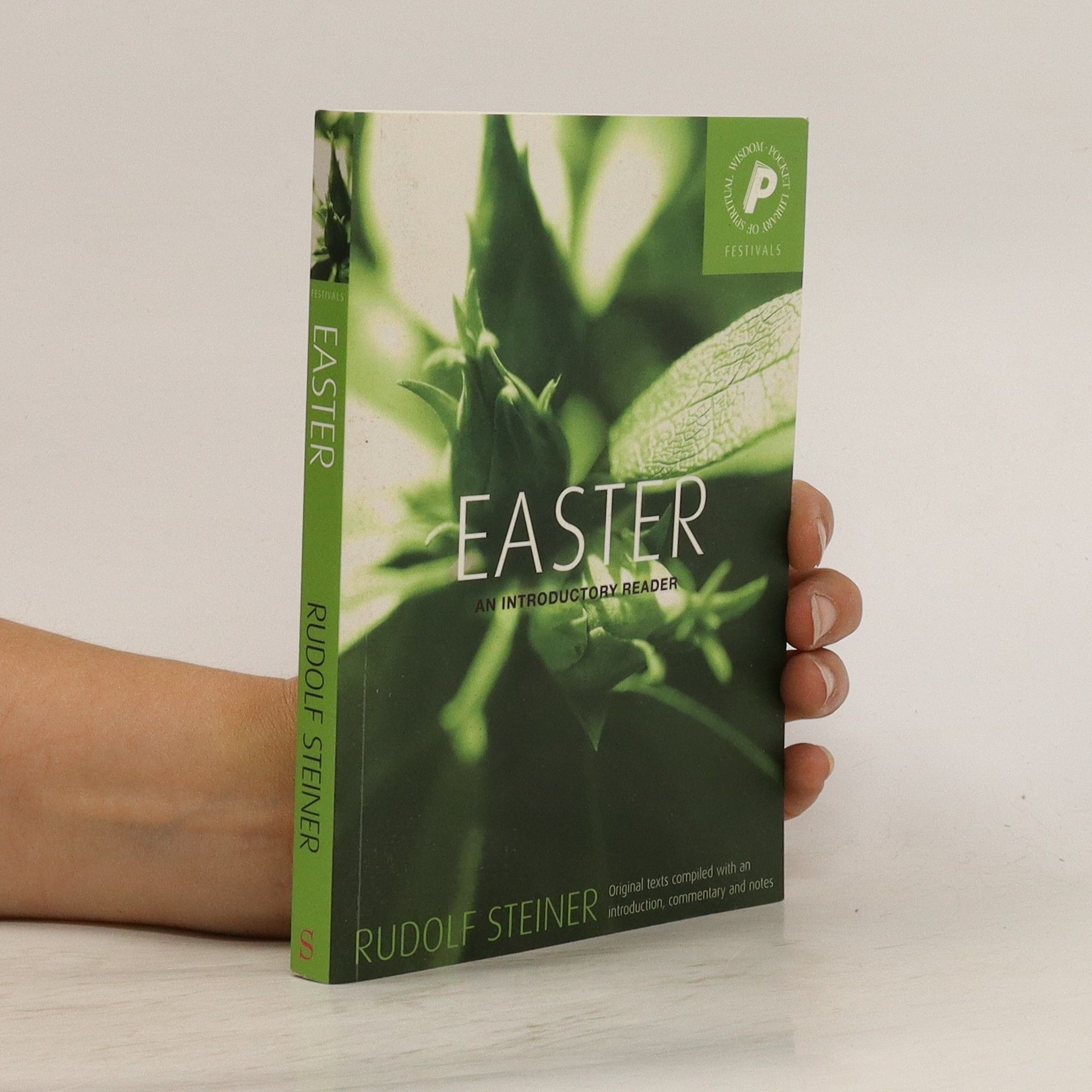Architecture
- 274 pages
- 10 hours of reading
This series invites readers on a journey into the depths of spiritual knowledge, presenting essential works from profound thinkers and mystics. Each volume is carefully curated to illuminate universal truths about life, consciousness, and the search for meaning. It is an indispensable collection for those seeking a deeper understanding of themselves and the world. Discover timeless wisdom that inspires and guides towards inner transformation.






Rudolf Steiner's contribution to human knowledge was based on his ability to conduct 'spiritual research', the investigation of metaphysical dimensions of existence. This title brings together excerpts from Steiner's talks and writings on the festivals of Whitsun and Ascension, along with an editorial introduction, afterword, commentary and notes.
En 1911 y 1912 Rudolf Steiner pronunció en Neuchtel (Suiza) tres conferencias sobre Christian Roacruz. En ellas, Steiner expuso revelaciones sorrendentes sobre la obra y la misión de este granAdepto Rosacruz. Tanto fue así que los rosacrucinos,eguidores de la filosofía rosacruz, han vsto en estas conferencias uno de los textos prinipales de su escuela espiritual y filosófica.En esta pequeña obra el ocultista Rudolf Steinertrata temas como: - Los siete grados de la Inciación. La Escuela de los doce. La ley delos 100 años. Los tres procesos alquímicos. Las reencarnaciones de Christian Rosacruz. Sn Francisco de Asís, reencarnación de Buda. L misión de Christian Rosacruz.
With his philosophical and scientific training, the author brought a systematic discipline to the field of spiritual research. This book contains samples of his work. It brings together excerpts from his many talks and writings on the subject of Atlantis.
Rudolf Steiner contributed much to the regeneration of modern culture. In addition to his philosophical teachings, he provided ideas for the development of many practical movements, including Waldorf education, biodynamic agriculture, anthroposophically extended medicine, the Christian Community, as well as ideas for economic renewal, architecture, Goethean science, and the arts. Steiner's original contribution to human knowledge was based on his ability to conduct spiritual research, the investigation of metaphysical dimensions of existence. With his scientific and philosophical training, he brought a new systematic discipline to the field, allowing for conscious methods and comprehensive results. A natural seer from childhood, he cultivated his spiritual vision to a high degree, enabling him to speak with authority on previously veiled mysteries of life. In this introductory reader, Barton collects excerpts from Steiner's many talks and writings on Easter. It also features an editorial introduction, afterword, commentary, and notes. Chapters: Can we Celebrate Easter? The Earth and the Cosmos Rising Sun Nature and Resurrection Golgotha, the Central Deed of Evolution Easter, a Festival for the Future
Rudolf Steiner, the often undervalued, multifaceted genius of modern times, contributed much to the regeneration of culture. This reader features samples of Steiner's work along with excerpts from Steiner's many talks and writings on Michaelmas. It also features an editorial introduction, afterword, commentary and notes.
Samples of Steiner's work are to be found in this introductory reader in which Andrew Welburn brings together excerpts from Steiner's many talks and writings on Religion. This volume also features an editorial introduction, commentary and notes. Topics include: mysticism and beyond: the importance of prayer; the meaning of sin and grace; rediscovering the Bible; true communion; rediscovering the festivals and the life of the earth; finding one's destiny: walking with Christ; the significance of religion in life and death; Christ's second coming: the truth for our time; universal religion: and the meaning of love.